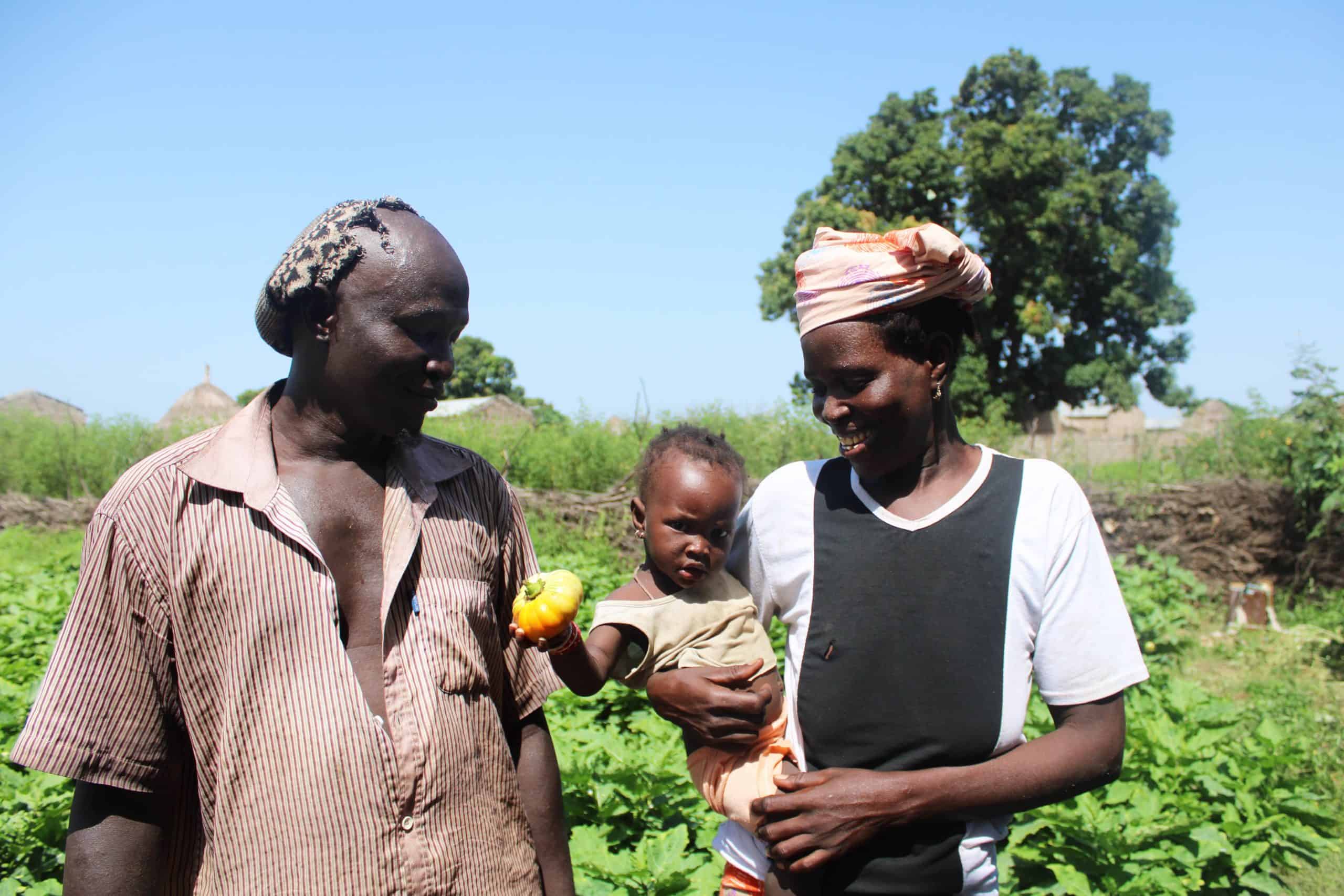“There were times when we had only one meal a day,” Momath says.
That all changed when Momath joined Trees for the Future’s (TREES) Forest Garden program in early 2020. TREES staff gave Momath and the other farmers in his group the knowledge and tools they needed to transform their degraded and low-performing peanut farms into thriving Forest Gardens.
“TREES uses agricultural techniques appropriate to each region,” says Idrissa Sarr, a TREES Assistant Technician in Fatick. “The Forest Garden system makes the soil fertile and prepares it for all kinds of crops. Since our establishment in the village of Keur Ibra Mberry, the farmers have cultivated moringa, pigeon peas, beans, chilli, tomato, eggplant, okra, lettuce, and more.”
The success of Momath’s Forest Garden and the other farmers in his project has not gone unnoticed, their vegetable market now regularly hosts customers from other villages.
“TREES has breathed new life into our village,” Momath says.
With the money he is earning from his vegetable harvests, Momath has already installed a well on his land and is saving up to buy a mill for the village. He has long term goals of purchasing a solar pump and a hen house.
In the meantime, the benefits of the Forest Garden are clear in the health and happiness of his ten children.
“I feel like my children are healthier now and have more health in the house. They are also more active,” he says.
